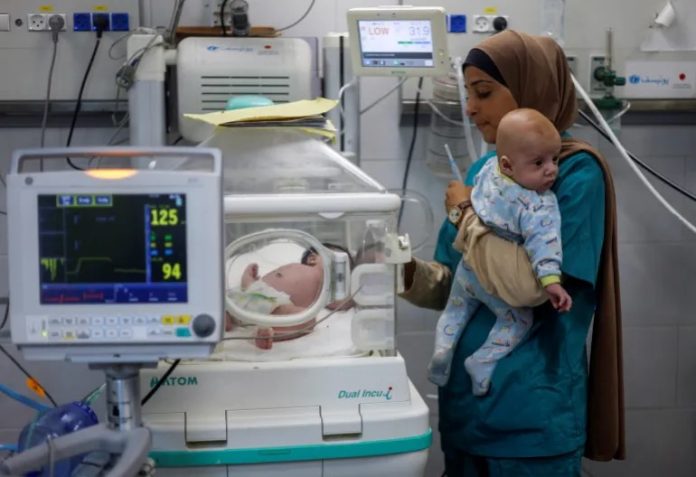20 August 2024: The ongoing conflict in the Gaza Strip has led to a dire humanitarian crisis, with a catastrophic impact on the region’s children. According to the Palestinian Ministry of Health, over 16,480 children have been killed, and thousands more have sustained injuries. The war has left no safe spaces, and all of Gaza’s children are enduring severe trauma that will have long-lasting effects.
The crisis has displaced approximately 1.9 million people – nearly 90% of Gaza’s population – with half of them being children. These displaced families face severe shortages of water, food, fuel, and medicine. Many children have been uprooted multiple times, losing their homes, parents, and loved ones in the process. The destruction of homes and the fragmentation of families have exacerbated the suffering, underscoring the urgent need for protection and support for both the children and the essential services they rely on, such as medical facilities and shelters.
One critical concern is the imminent threat to Gaza’s only functioning neonatal intensive care unit (NICU) at Kamal Adwan Hospital in northern Gaza. Officials at the hospital have raised alarms about severe shortages of fuel and medicine, which are jeopardizing the facility’s operations. Ahmed Zeyad, the head of the NICU, reported to Al Jazeera that the unit relies on electricity to power ventilators and incubators for newborns. With frequent interruptions to solar power supplies, the lives of infants are at imminent risk.
The conflict has also resulted in a staggering number of casualties, with at least 40,139 people reported dead and 92,743 wounded. Recent reports indicate that Israeli forces have killed at least 35 Palestinians in the last 24 hours alone.
The situation in Gaza remains critical, with the need for immediate humanitarian aid and support for vulnerable populations, particularly children, becoming increasingly urgent.




